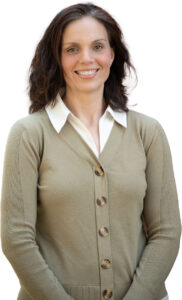For Highland Hospital geriatrician key to successful aging is to maximize patients’ positive lifestyle habits while reducing risks for chronic diseases
By Chris Motola
Q: How gracefully are the baby boomers aging so far?
A: That’s a very good question. My parents are in this cohort, so I may be a little bit biased by my own experience, but I think in general, the baby boomers are going to be a very different population of older adults to care for as opposed to the generation before them, the ones I trained on during my residency. I think baby boomers are a lot more technologically savvy. They really want to be partners with their doctors whereas the previous generation were more deferential and had more of a “tell me what to do, doctor” kind of attitude. I think the baby boomers are going to be very active participants in their care and will be utilizing technology in ways previous generations of elderly people did not. I think that’s a great thing and one that will help them stay engaged in lifestyle measures that will allow them to stay fitter for longer.
Q: Any downsides to this outlook?
A: I think the part where you can get into turbulent territory is when they experience decline that is outside of their control and beyond the modalities their doctor has to offer. That can be difficult when you’re in the mindset of there being so many things that we can control. Unfortunately, we still haven’t found a cure for a lot of the major ailments of aging like dementia, chronic disability, chronic pain. It can really cause some friction, which is what I’m most concerned about with the baby boomer population.
Q: Obviously we can’t ward off time forever, but have we made strides in — I think the phrase used to be “compression of morbidity?” What can modern medicine do along those lines?
A: I love that concept of compression of morbidity. I believe it was introduced by James Fries in the ‘80s. I’ve utilized that idea quite a bit when I’ve written and taught about the tenets of lifestyle medicine, which is an emerging field and one I hope more geriatricians actively incorporate into their practice. It’s just kind of a yin and yang situation. You’re never too old to work on lifestyle. However, the other side of that is that longer we’ve made an arc in a particular direction, the harder it can be to turn the ship around. So we have to take that into consideration. Everyone is so different. It’s hard to paint in broad strokes, but everyone’s health is a combination of their genetic makeup, their habits, their environment and things that happen to them. We try to optimize what we can. Sometimes even minor lifestyle changes can have profound effects. So my whole deal is taking where somebody is, even if they’re in incredible pain, even if they have an incurable illness, and saying what can we do to maintain or improve their function for whatever time they have left. So, again, when you talk about compression of morbidity, a lot of people mistake that as an all-or-nothing proposition. What I’d propose is that we can take a person wherever they currently are and work with them to see what risk factors are modifiable and help them function at the highest possible level for the remainder of their time.
Q: What got you interested in geriatrics?
A: A lot of different things. I got into internal medicine knowing that I wanted to take care of the whole person. I found that the geriatricians I was working with at the University of Rochester were very inspirational role models. They really turned some of the ways I had been thinking of patient issues on their head. They used the internal medicine framework to understand the diseases and then incorporated additional layers: what is important to this person? What is their social situation? What cognitive limitations do they have? What kind of support network do they have? And then they work with their patient and their families with all of these things in mind to develop a holistic plan with them. That was a bit different than some of the other fields I had been working with. So I was really attracted to that model of getting at what matters most to that patient, patients who are often facing incredible challenges. We don’t often have silver bullets for them, but walking with them through this journey and finding ways to improve their quality of life and help guide them through their end of life if that’s what’s going on. So I’ve found all that incredibly fulfilling.
Q: One of the challenges of aging seems to be sorting out what is a result of age and what is actually a result of deconditioning.
A: Yeah. I think one of the things I always keep in mind is to be very careful of what we attribute to just getting old, because that’s a really easy way to be wrong. It’s difficult to sort out. That’s where it comes back to that yin and yang of doing what you can with what you have. To maximize the things that are within your power, and to help patients maximize them as a healthcare provider. If you can’t maximize it, you may have to consider that some of the issues are a function of normal aging. We do have principles of normal aging that we go by as general tenets, but you want to be careful of, say, chalking knee pain and fatigue up to getting old. It’s ageist, for one thing, and you’re not treating the patient with the respect they deserve.
Q: There’s been some decline in life expectancy recently. How is that playing out in the elderly age cohort? Are people less healthy?
A: I think any answer I can give to that is speculative, but I think some of that reversal is from COVID-19, which took the lives of far more of our older and frailer population than our younger and fitter. The trend I’m more concerned with over the long run, and this goes back to compression of morbidity, is we’re seeing the opposite of that. We’re seeing trends toward longer periods of disability over the course of life. So people are developing chronic disease states earlier in life and living longer with them. It’s a distressing trend, because when people develop diseases earlier in life, they tend to progress and lead to disability at a younger age. If you develop diabetes at age 75, they won’t experience as many complications from diabetes before they die compared to a patient who develops it at 45. And a lot of this goes back to our lifestyle habits.
Q: What’s something you think other healthcare specialties can learn from geriatricians?
A: I’m an academic geriatrician, which means that I do a lot of work at the university as a teacher and working on quality improvement, which means making your systems better. And one way I’m doing that is by working on making Rochester an age-friendly health system, because the frank reality is there aren’t enough geriatricians to see all the patients who need our care. And all health professionals, minus pediatricians, do need these skills.
Lifelines
 Name: Jennifer Muniak, MD
Name: Jennifer Muniak, MD
Position: Assistant professor of medicine and geriatrician at University of Rochester Medical Center; practices at Highland Hospital and the Highlands at Brighton Nursing Home.
Hometown: Syracuse
Education: SUNY Upstate Medical University, Syracuse
Awards: University of Rochester Medical Center Board Excellence Award, 2023; Susan B Anthony Emerging Leader Award, 2021
Organizations: American Geriatrics Society; AMDA; Monroe County Medical Society
Family: Husband, two children
Hobbies: Yoga, singing, vegan cooking

